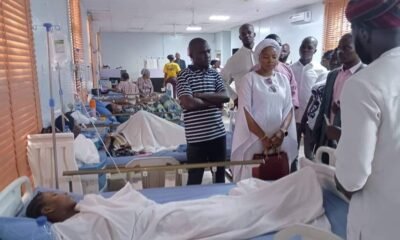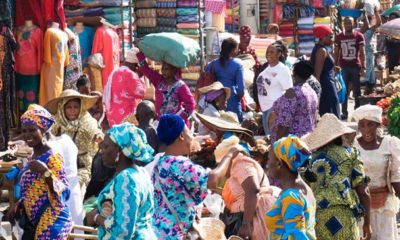News
Best Ways To Support Survivors Of Gender-Based Violence -WHO

With gender-based violence an immediate aftermath of prolonged and intense conflict around the world, it has become imperative to know how to mitigate it.
This is one of the many concerns of the World Health Organisation (WHO), which lists factors that facilitate gender-based violence to include displacement along with breakdowns of law and order, economic and food insecurity and disruptions in services.
It says because of the profound, long-lasting physical and mental health impacts it could have, that there was need for timely access to health services.
The organisation, in a recent article titled: Supporting survivors of gender-based violence during humanitarian emergencies argues that one of the best ways to rendering help to victims, is by making comprehensive, survivor-centred care critical.
While observing that health workers are often the first – and sometimes the only – point of contact for survivors, it adds however, that “during humanitarian emergencies, damaged infrastructure, limited mobility, experience of stigma and lack of trained health workers often make it extremely difficult to access support”.
READ ALSO: Experts Tackle Tech-Facilitated Gender-Based Violence At Forum
READ ALSO: Wife Narrowly Escapes Death for Serving Husband Divorce Papers
For example, it says that together with partners, that it works to strengthen the response to gender-based violence in emergencies by supporting health workers, through training and tools, to deliver high-quality, compassionate care to those affected.
“In the last six years, over 10 000 health workers received training covering clinical management of rape and intimate partner violence using WHO’s Clinical Management of Rape and Intimate Partner Violence Survivors protocol for humanitarian settings.
Citing a case with northeast Nigeria, the organisation, says mobile health teams play a vital role in delivering care to remote and hard-to-reach communities, many of which are populations displaced by ongoing conflict.
“These teams address wide-ranging health needs, from disease prevention to gender-based violence response.
“Over 150 of the mobile team staff received training on providing first-line support to survivors.
Another intervention it lists as key is training, saying that not only does it equip the mobile health teams to provide better survivor-centred care, but it also boosts community outreach.
“There was a lot of sensitisation and awareness raising by the mobile health team staff in the communities after being trained,” it quotes a mobile health team coordinator as recalling, who also added. “We are getting more cases reported by displaced women and girls.”
READ ALSO: An Uncle I Least Expected Raped Me
READ ALSO: Sick Man On The Run After Raping Niece Who Came…
Another important point canvassed is that since 2018, the WHO had supported work in 29 humanitarian emergencies to improve access to and provision of quality healthcare for survivors.
“The urgency is significant. In 2023, a record 339 million people needed humanitarian assistance globally, while an estimated 32 million women and girls of reproductive age live in emergency situations”, the report said.



























